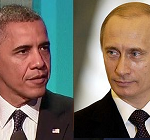Tensions between the NATO and Russia have hit a new low with the NATO calling for a suspension of all practical civilian and military cooperation with Russia until it withdraws its troops from the Ukraine border. Gateway House’s Shai Venkatraman talks to Ronen Sen, who served as the Indian Ambassador to Russia for six years in the initial period of its post-Soviet transition, about the global implications of Russia’s suspension from the G8 and the impact of these developments on major geopolitical issues like Iran and Syria.
Q. Would you say that the developments we are witnessing in Ukraine today are a culmination of events that have been building up over the decades?
The tensions we are witnessing today flow from the issues unresolved since the breakup of the Soviet Union, and the emergence of a new Russia and fourteen other successor states that arose from the debris over two decades ago. After the collapse of the Soviet Union, Ukraine inherited the third largest nuclear weapons stockpile in the world. It had a nuclear arsenal that was more than that of China, France and the UK put together. In 1994 Ukraine committed to full disarmament and transferred all its strategic nuclear assets to Russia, in return for solemn assurances on its sovereignty and territorial integrity, including over that of Crimea, from the U.S., the UK and Russia. Soon thereafter, France and China provided similar assurances. During this period Russia and Ukraine also entered into a treaty for the long-term lease of facilities in Crimea for the operation of the Russian Black Sea Fleet.
In the course of my visits to states like Georgia and Moldova, as India’s special envoy while based in Moscow as Ambassador, I gathered that they faced constant pressure from Russia on re-integration, as well as inducements to join the NATO and the EU and make the gains of the Cold War irreversible, and in the process isolate Russia. These tensions later erupted into the conflict in Georgia which resulted in Russia recognizing the independent statehood of South Ossetia and Abkhazia. There are simmering tensions in Moldova as well.
Q. What are the global implications for the G8 now becoming the G7?
The major implication is symbolic. If you look at it in terms of actual impact, it is not that significant. Compared to G7 countries, Russia has an economy larger than that of Canada, the same size as that of Italy and a bit smaller than that of France.
Q. With the U.S. and Russia now engaging in tit for tat sanctions over Crimea, Europe, which imports 30% of its gas from Russia, is urgently looking for ways to reduce that dependence. There are also talks going on about importing shale gas from the U.S. But given the high transport costs involved, and the enormous needs of the American industry, do you think this can be a long term solution?
Any new arrangement will need substantial infrastructure to be put into place. Russia still remains the cheapest energy option for Europe and this will prevent the stand-off over Crimea from deteriorating beyond repair. I don’t believe that major European countries will make a complete break with current arrangements despite their concerns over Moscow’s policies.
I also don’t foresee a breakdown of cooperation between the two sides when it comes to other geopolitical issues like Iran, Syria or North Korea. Tensions are running very high but the lines of communication are open at all levels. On the efficacy of sanctions, one must remember that unlike the former Soviet Union, which was relatively isolated from the West in terms of tourism, trade, investments, technology transfers and financial links, there is more interdependence today. Russia will be affected, but it won’t be one-sided.
Q. Europe has the option of importing LNG from Qatar and Algeria as well. Another option being discussed is to persuade Germany to turn its nuclear power stations back on which could help reduce the dependence on Russia. Could you talk about the various factors coming into play in this new energy one-upmanship?
These new factors that are emerging will remain in play. Apart from exploring viable means of procuring energy resources, there is also strong public sentiment relating to climate change and renewable energy. None of this will have any short or medium term implications for relations with Russia.
Q. As relations between Russia and the U.S. become increasingly hostile will India come under greater pressure to take sides?
We have taken a balanced, pragmatic position. We have not deplored Russian action in Crimea, while reaffirming our position on the issue of unity and territorial integrity, but we are not backing them either. Russia is clearly isolated as was evident in the voting pattern in the United Nations. Yet the large number of abstentions from the voting also reflected the widespread misgivings about the provocations which led to the extreme step taken by Russia, and the recognition of the need to find a solution taking into account the interests of all the parties involved, as well as international norms of conduct. Russia will not be interested in upping the ante and no major country wants the situation to spiral out of control. In such an evolving situation, it may not be necessary for India to take sides.
Ronen Sen has served as India’s Ambassador to Russia, Germany, Mexico and the United States and as High Commissioner to the UK.
This interview was exclusively conducted for Gateway House: Indian Council on Global Relations. You can read more exclusive content here.
For interview requests with the author, or for permission to republish, please contact outreach@gatewayhouse.in.
© Copyright 2014 Gateway House: Indian Council on Global Relations. All rights reserved. Any unauthorized copying or reproduction is strictly prohibited.


